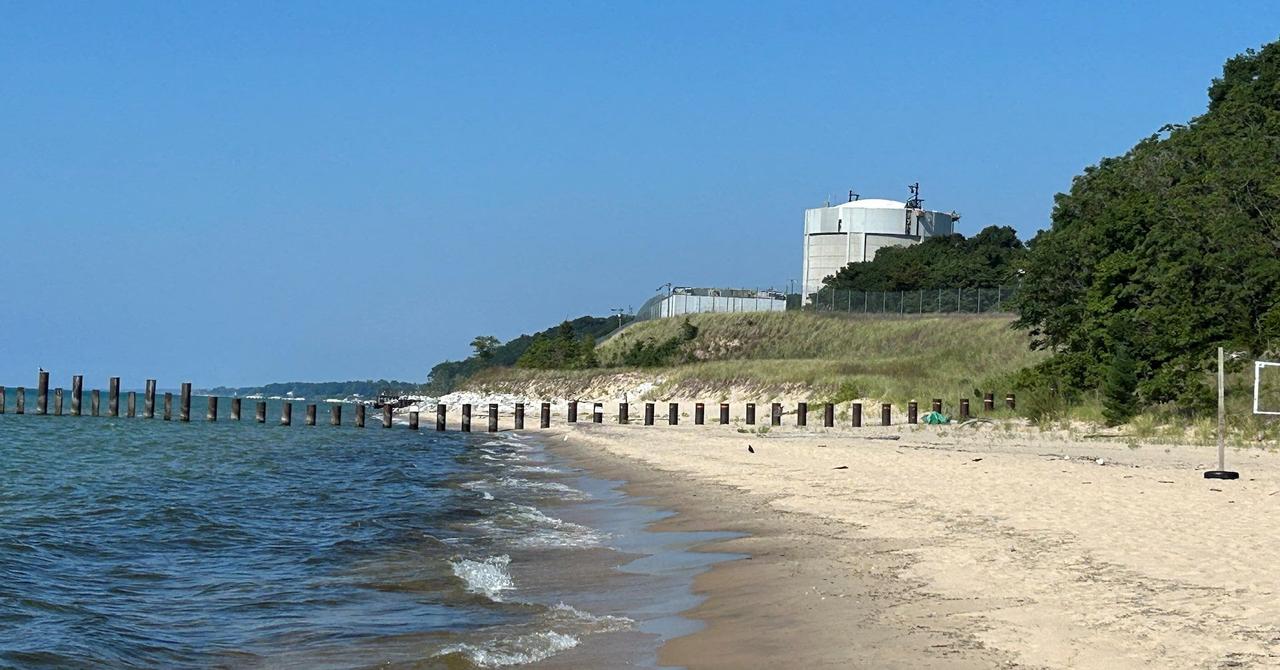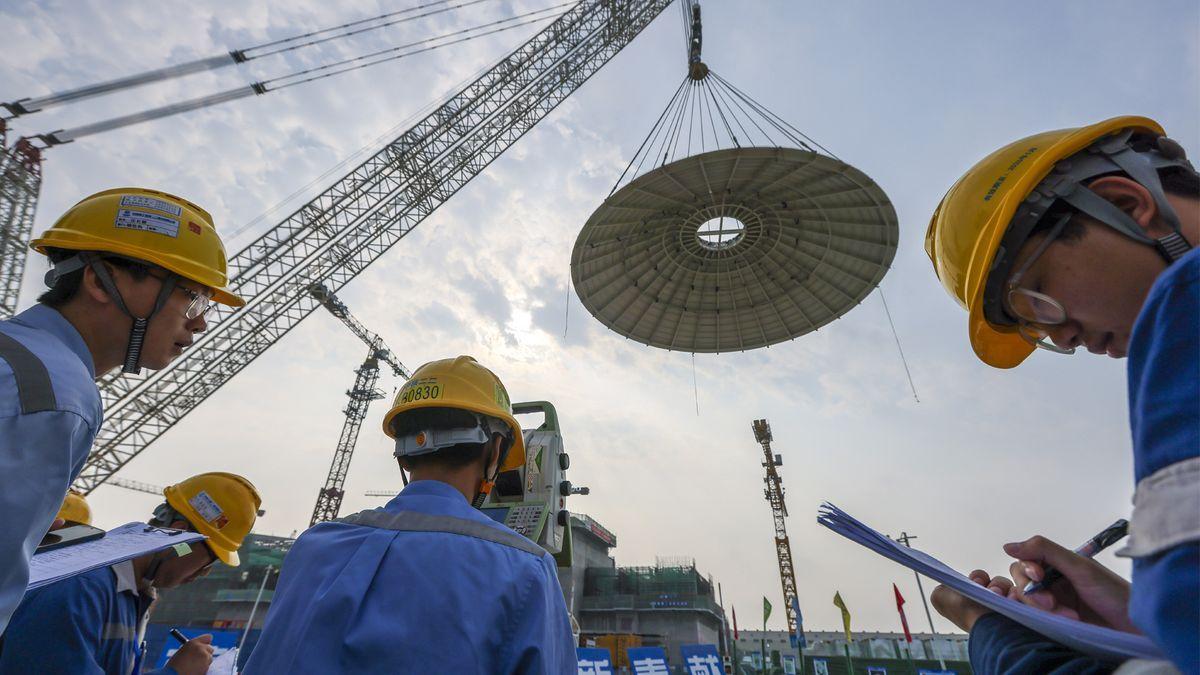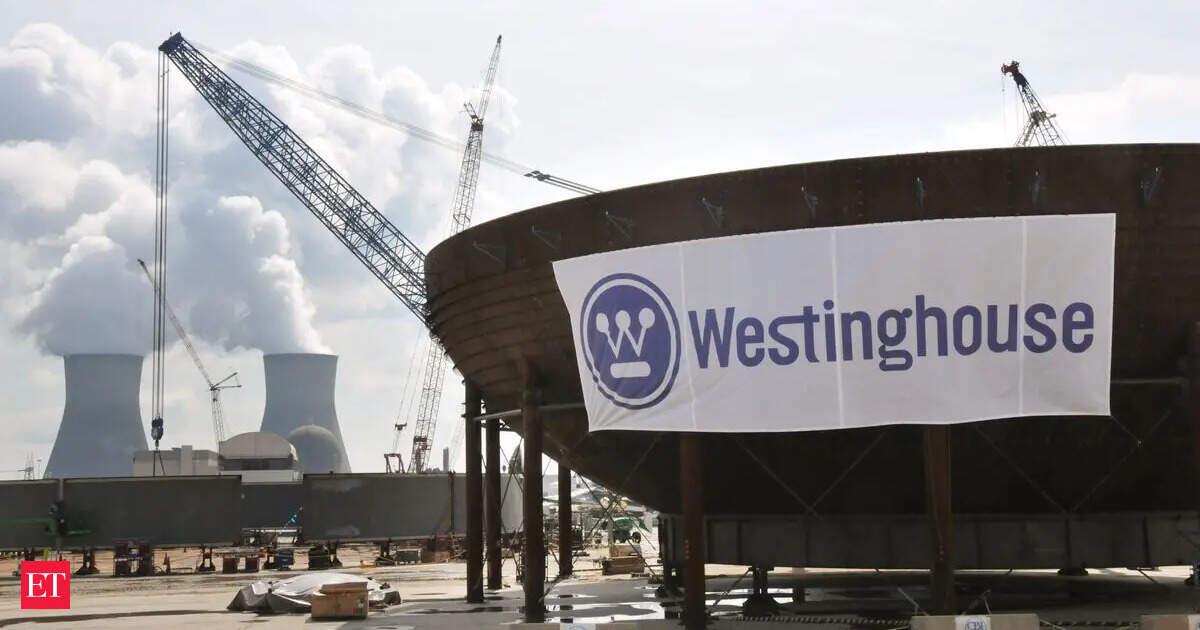NuScale's 77 MW Small Modular Reactor Design Approved by US Regulators, Paving Way for AI-Driven Energy Demand
2 Sources
2 Sources
[1]
US Approves NuScale's Bigger Nuclear Reactor Design
WASHINGTON (Reuters) -The U.S. Nuclear Regulatory Commission on Thursday approved NuScale Power's design for 77 megawatt reactors, clearing a hurdle for the company as it seeks to be the first company to build a U.S. small modular reactor. NuScale sought approval for the 77 MW design to improve economics and performance of its planned small modular reactors (SMRs), after having originally received NRC approval in 2020 for a 50 MW reactor design. SMRs are designed to be built in factories with relatively easily replicated parts instead of onsite like conventional nuclear power plants. Backers say the reactors will be safer to operate, their uranium cycles will be more resistant to access from militants seeking to obtain fissile materials, and their modular aspect will reduce costs for multiple plants. SMR critics say they will be more expensive to operate than conventional reactors, which have larger reactors, and they will continue to produce radioactive waste for which the U.S. has no permanent repository. NuScale is the only U.S. company with an approved design, but reaching the point of building a plant has been elusive. In 2023 NuScale axed its first project with a Utah municipal power group, despite a U.S. government promise of $1.35 billion in funding over 10 years for the plant, known as the Carbon Free Power Project. As costs rose, several towns had pulled out of the project. John Hopkins, NuScale's president and chief executive, said Thursday's approval, which came two months earlier than had been expected, allows the company to construct and operate a plant. "We now have an American technology that is near-term deployable," Hopkins said. As many as 12 of the 77 MW reactors can be put together in a plant, he said, which would be about the size of a typical conventional reactor. Hopkins said the company could have an SMR in operation by the end of the decade if a customer moves quickly. "It's really in the customer's hands." NuScale shares were down 3.9% at $33.96 in afternoon trade. Interest in nuclear energy has spiked as U.S. power demand rises for the first time in two decades on the boom in so-called hyper-scalers building data centers needed for artificial intelligence. Last week President Donald Trump signed four executive orders aiming to overhaul the Nuclear Regulatory Commission, including reducing staffing levels in some offices. The orders also directed the Energy and Defense departments to work together to build nuclear plants on federal lands. The orders did not direct any new public funding but could open the way for financing from the Loan Programs Office. Hopkins said NuScale is in talks to build SMRs with five "tier one hyper-scalers that we have non-disclosure agreements with." He did not identify them. (Reporting by Timothy Gardner; editing by Philippa Fletcher and Leslie Adler)
[2]
US approves NuScale's bigger nuclear reactor design
WASHINGTON (Reuters) -The U.S. Nuclear Regulatory Commission on Thursday approved NuScale Power's design for 77 megawatt reactors, clearing a hurdle for the company as it seeks to be the first company to build a U.S. small modular reactor. NuScale sought approval for the 77 MW design to improve economics and performance of its planned small modular reactors (SMRs), after having originally received NRC approval in 2020 for a 50 MW reactor design. SMRs are designed to be built in factories with relatively easily replicated parts instead of onsite like conventional nuclear power plants. Backers say the reactors will be safer to operate, their uranium cycles will be more resistant to access from militants seeking to obtain fissile materials, and their modular aspect will reduce costs for multiple plants. SMR critics say they will be more expensive to operate than conventional reactors, which have larger reactors, and they will continue to produce radioactive waste for which the U.S. has no permanent repository. NuScale is the only U.S. company with an approved design, but reaching the point of building a plant has been elusive. In 2023 NuScale axed its first project with a Utah municipal power group, despite a U.S. government promise of $1.35 billion in funding over 10 years for the plant, known as the Carbon Free Power Project. As costs rose, several towns had pulled out of the project. John Hopkins, NuScale's president and chief executive, said Thursday's approval, which came two months earlier than had been expected, allows the company to construct and operate a plant. "We now have an American technology that is near-term deployable," Hopkins said. As many as 12 of the 77 MW reactors can be put together in a plant, he said, which would be about the size of a typical conventional reactor. Hopkins said the company could have an SMR in operation by the end of the decade if a customer moves quickly. "It's really in the customer's hands." NuScale shares were down 3.9% at $33.96 in afternoon trade. Interest in nuclear energy has spiked as U.S. power demand rises for the first time in two decades on the boom in so-called hyper-scalers building data centers needed for artificial intelligence. Last week President Donald Trump signed four executive orders aiming to overhaul the Nuclear Regulatory Commission, including reducing staffing levels in some offices. The orders also directed the Energy and Defense departments to work together to build nuclear plants on federal lands. The orders did not direct any new public funding but could open the way for financing from the Loan Programs Office. Hopkins said NuScale is in talks to build SMRs with five "tier one hyper-scalers that we have non-disclosure agreements with." He did not identify them. (Reporting by Timothy Gardner; editing by Philippa Fletcher and Leslie Adler)
Share
Share
Copy Link
The U.S. Nuclear Regulatory Commission has approved NuScale Power's design for 77 megawatt small modular reactors, marking a significant step towards deploying this new nuclear technology. The approval comes amid rising interest in nuclear energy due to increased power demands from AI-related data centers.
NuScale's Advanced Reactor Design Approved
The U.S. Nuclear Regulatory Commission (NRC) has granted approval to NuScale Power for its 77 megawatt small modular reactor (SMR) design, marking a significant milestone in the development of next-generation nuclear technology
1
. This approval, which came two months earlier than expected, allows NuScale to move forward with plans to construct and operate plants using this innovative reactor design1
2
.
Source: Market Screener
Small Modular Reactors: A New Approach to Nuclear Energy
SMRs represent a departure from traditional nuclear power plant designs. These reactors are designed to be manufactured in factories with standardized, easily replicated components, as opposed to being built entirely on-site like conventional nuclear facilities
1
. Proponents of SMRs argue that this approach offers several advantages:- Enhanced safety features
- Improved resistance to proliferation of fissile materials
- Potential cost reductions for multiple plant installations due to their modular nature
However, critics contend that SMRs may be more expensive to operate than conventional reactors and will still produce radioactive waste, for which the U.S. lacks a permanent storage solution
1
.NuScale's Journey and Challenges
NuScale stands as the only U.S. company with an NRC-approved SMR design. The company initially received approval for a 50 MW design in 2020 and sought the current 77 MW upgrade to enhance economic viability and performance
1
. Despite this progress, NuScale has faced setbacks in implementing its technology. In 2023, the company was forced to cancel its first project with a Utah municipal power group, even after securing a $1.35 billion government funding commitment1
2
.Market Response and Future Prospects
John Hopkins, NuScale's president and CEO, expressed optimism about the approval, stating, "We now have an American technology that is near-term deployable"
1
. The company envisions plants comprising up to 12 of these 77 MW reactors, potentially matching the output of a typical conventional reactor1
.Despite the positive news, NuScale's shares experienced a 3.9% decline in afternoon trading, closing at $33.96
1
2
. This market response suggests a complex landscape for nuclear energy investments.Related Stories
AI-Driven Energy Demand and Nuclear Renaissance
Interestingly, the approval comes at a time of renewed interest in nuclear energy, driven by an unprecedented increase in U.S. power demand. This surge is attributed to the rapid expansion of data centers required for artificial intelligence operations, often referred to as "hyper-scalers"
1
2
.Government Support and Industry Collaboration
Recent executive orders signed by President Donald Trump aim to streamline the Nuclear Regulatory Commission and promote collaboration between the Energy and Defense departments for building nuclear plants on federal lands
1
. While these orders don't allocate new public funding, they may facilitate financing through the Loan Programs Office1
.NuScale is reportedly in discussions with five major "tier one hyper-scalers" regarding potential SMR construction, although specific companies remain undisclosed due to non-disclosure agreements
1
2
.As the nuclear industry adapts to meet the energy demands of the AI era, NuScale's approved design represents a significant step towards realizing the potential of small modular reactors in the evolving energy landscape.
References
Summarized by
Navi
[1]
[2]
Related Stories
X-energy Raises $700M to Accelerate Small Modular Reactor Development for AI Data Centers
24 Nov 2025•Business and Economy

NRC Approves Holtec's Request to Restart Michigan Nuclear Plant Amid Growing Energy Demand
26 Jul 2025•Business and Economy

Small Nuclear Reactors: A Gamble to Power AI's Surging Energy Demands
29 Sept 2025•Technology

Recent Highlights
1
OpenAI secures $110 billion funding round from Amazon, Nvidia, and SoftBank at $730B valuation
Business and Economy

2
Anthropic stands firm against Pentagon's demand for unrestricted military AI access
Policy and Regulation

3
Pentagon Clashes With AI Firms Over Autonomous Weapons and Mass Surveillance Red Lines
Policy and Regulation





